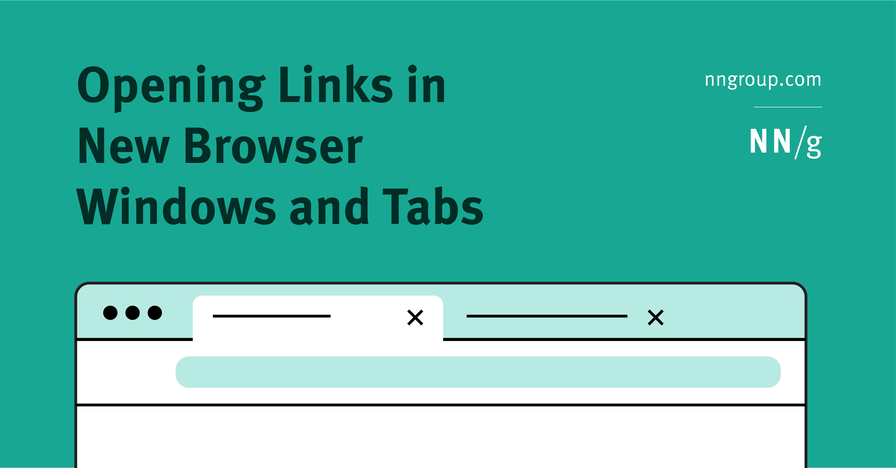Refrain from Opening Links in New Browser Windows and Tabs

my notes ( ? )
Since 1999, it's been a firm web-usability guideline to refrain from opening new browser windows for several reasons. All of these also apply to opening new browser tabs and are still valid today:
- More windows or tabs increase the clutter of the user’s information space and require more effort to manage.
- New windows or tabs can cause disorientation, with users often not realizing that a new window or tab has opened. This problem is exacerbated on mobile, where the old window is never visible.
- Less-technical users struggle to manage multiple windows and tabs, especially on mobile. (On tablets, where users can have both multiple windows and tabs for the browser, it’s even more confusing.)
- New windows or tabs prevent the use of the Back button for returning to the previous page and force the user to spend effort to find their way back to the previous content.
- New windows or tabs are not inclusive for blind or low-vision users — especially when they open outside of the area that's magnified.
Potential exceptions - when users accept a new browser window or tab opening
- Directly download native files from links posted on the web.
- Open links to PDF documents in new tabs on desktop.
Read the Full Post
The above notes were curated from the full post www.nngroup.com/articles/new-browser-windows-and-tabs/.Related reading
More Stuff I Do
More Stuff tagged information architecture , content management , usability , ux , web usability , user experience , cognitive psychology
See also: UX , Content creation & management